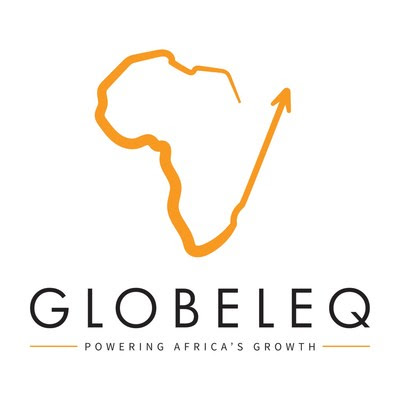LONDRES et LE CAP, Afrique du Sud, 3 novembre 2021 /PRNewswire/ — Globeleq, société énergétique indépendante de premier plan d’Afrique et partenaire majoritaire du Consortium Ikamva, a été sélectionné pour contribuer à la réalisation de plus de projets éoliens et solaires propres et renouvelables dans le pays.

Les six projets éoliens et les six projets solaires photovoltaïques représenteront une capacité de production totale de 1 274 MW. Ils viennent s’ajouter aux neuf actifs éoliens et solaires détenus et exploités majoritairement par Globeleq en Afrique, avec une une capacité totale de 450 MW. Globeleq et ses partenaires du consortium Ikamva ont été désignés par le ministère sud-africain des Ressources minérales et de l’Énergie (DMRE) comme soumissionnaire privilégié pour 12 des 25 projets retenus dans le cadre du 5e appel d’offres du programme d’approvisionnement des producteurs indépendants d’énergie renouvelable (REIPPPP) d’Afrique du Sud.
Outre Globeleq, le consortium Ikamva comprend Mainstream Renewable Power, Africa Rainbow Energy & Power (AREP) et H1 Holdings et est détenu à plus de 45 % par des Noirs. Le ministère des Ressources minérales et de l’Energie a indiqué que l’ensemble des 25 projets injectera un total d’environ 50 milliards de rands dans l’économie grâce aux investissements du secteur privé et créera plus de 13 000 emplois.
Commentant cette annonce, le PDG, Mike Scholey, a déclaré : « Nous sommes ravis d’apprendre cette nouvelle. Notre solide expérience en matière de réalisation et d’exploitation de projets énergétiques de qualité, associée à l’expertise de tous les partenaires de notre consortium, nous permet de jouer un rôle important dans la transition du pays vers un avenir énergétique plus propre. »
Jonathan Hoffman, directeur du développement de Globeleq, basé au Cap, a ajouté : « Le consortium a réuni des partenaires locaux et internationaux de classe mondiale afin de se doter d’une position concurrentielle pour ces projets. Notre consortium a veillé à proposer un tarif compétitif, et à assurer un actionnariat et une participation significatifs des groupes BEE. Grâce aux projets éoliens et solaires opérationnels et à ces nouveaux projets de Globeleq en Afrique du Sud, nous continuons à soutenir l’avenir énergétique durable du gouvernement et à créer une valeur partagée pour toutes les parties prenantes. »
Les projets attribués comprennent trois projets éoliens dans le Cap Nord, deux projets éoliens dans le Cap Ouest et le premier projet éolien dans la province du KwaZulu-Natal. Les projets solaires sont tous situés dans la province de l’État libre, où aucun projet d’énergie renouvelable n’a encore été construit dans le cadre du programme REIPPP.
Globeleq est fière de sa réputation de constituer des équipes solides dans le pays et de soutenir les communautés proches de ses centrales en mettant en œuvre des initiatives innovantes en matière de développement socio-économique, de création d’entreprises et de renforcement de compétences. En outre, les possibilités d’emploi pendant les phases de développement et de construction seront axées sur le soutien aux communautés locales. Une fois les centrales en service, l’équipe actuelle de Globeleq Afrique du Sud, qui compte 82 employés permanents, devrait être renforcée par la création de 50 postes supplémentaires. Globeleq gérera l’exploitation et la maintenance des installations solaires et assurera l’équilibre des services des centrales éoliennes.
À propos de Globeleq
Globeleq est un promoteur, propriétaire et exploitant de premier plan de la production d’électricité en Afrique. Depuis 2002, son équipe de professionnels expérimentés a constitué un portefeuille diversifié de producteurs énergétiques indépendants générant plus de 1 500 MW sur 14 sites dans 6 pays, avec 305 MW supplémentaires en construction et plus de 2 000 MW de projets énergétiques en cours de développement. www.globeleq.com
Logo – https://mma.prnewswire.com/
